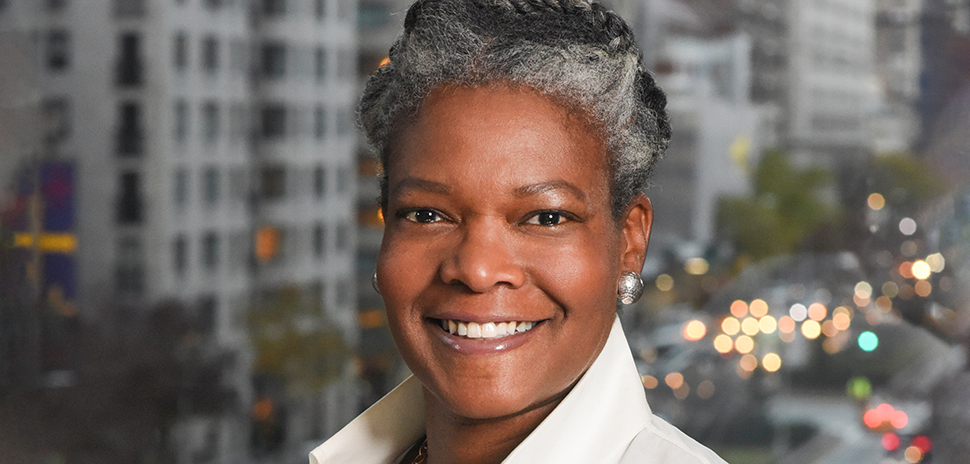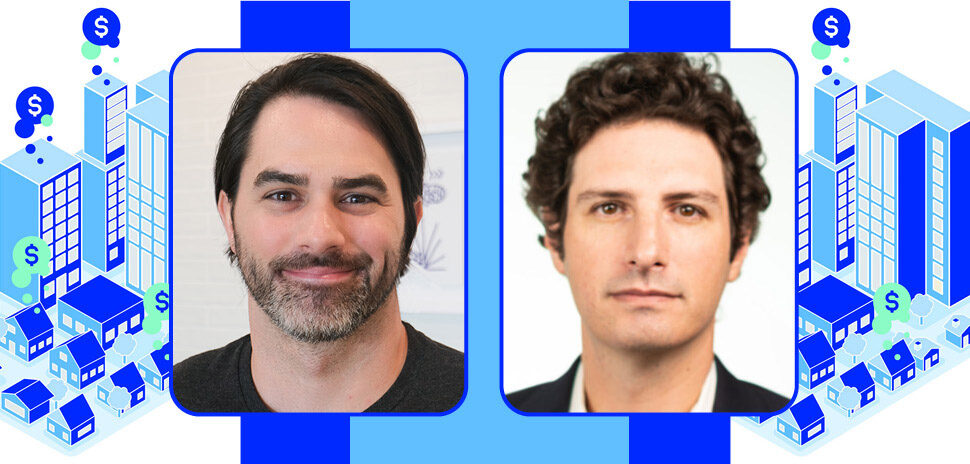Retail is a big part of Dallas’s DNA. That’s made us resilient, and we’ll need to be: with 10,000 stores closing nationwide as of August, retail has faced unprecedented challenges. But bright spots have stood out, and a renewed focus on quality and service is turning the tide for many.
Brand familiarity and customer loyalty are really important right now, says Tamela Thornton, president and CEO of E Smith Communities. Moving forward, building a solid tech platform is a must for retailers—and growth in the next few years must be based on real, analytically validated demand.
E Smith Communities, an arm of E Smith Legacy, a real estate company helmed by former Dallas Cowboys star Emmitt Smith, is moving forward with plans to develop a mixed-use project in southern Dallas, according to the firm, Thornton says.
Smith purchased a 30,000-square-foot building near the VA Medical Center, which has been empty for years, in 2019 with plans to redevelop the property. Called 4315 Innovation Center, construction has already begun on the repurposed space that will find new life as a community office center and retail space.
“We’re pleased to continue our work on this strategically located and well-constructed asset in the heart of this growing South Dallas market,” Thornton, the head of social infrastructure development with E Smith Legacy, said in a statement.
The project’s tenants, including Cedar Valley Community College, UNT Dallas, Guru Financial, and other community-focused small businesses, are committed to providing services and jobs to the local community, she says.
“4315 Innovation Center has had to evolve like other projects,” Thornton says. “Delays are not cheap, but we’re delivering a nice, essentially new space. We’re creating an education and wellness ecosystem.”
E Smith is partnering with tenants of the project to build and incubate talent, reinvest for future growth, and inspire users to thrive in a “healthy, creative, and conscious space,” she says. “We are partners in the evolution of a community.”
Thornton sees new local small businesses coming to the concept that’s been operating in a series of popups for the last few years.
“I think she’s ready to really make an impact, especially with the number of students and new employees who will be on site,” she says.
Thornton, one of the commercial real estate experts in our feature “21 on 2021,” shares her take on what’s next in a Q&A.
 What lies ahead for retail redevelopment in DFW for 2021?
What lies ahead for retail redevelopment in DFW for 2021?
Retailers have had to innovate. A report from BDO said more than 10,000 stores had closed by August 2020. Those retailers with the ability to support offsite consumption either via online ordering and delivery or curbside pickup were able to sustain their businesses. Retailers who focus on basic needs—grocery stores, home goods, and more—were impacted but are rebounding. Tenants who already had a solid online platform were also in a better position to react.
However, when your job and your health are in jeopardy, shopping for non-essential items really isn’t your priority. Apparel stores are trying to shift, but if you’re still working remotely from home, buying new clothes isn’t important.
It’s been interesting to watch grocery stores. People are coming back in, but online ordering and prepared meals are gaining market share. Many people still have kids at home from school, so how we’re managing our time is different and the changes are designed to help us keep up. I think the trend to blend online and in-store consumption is going to continue. Building a solid tech platform will be a must for retailers.
What impact has the pandemic had on retail redevelopment?
The market will likely see some restaurants and home-based services (grocery stores, home improvements, and value-oriented uses) do well. Brand familiarity and customer loyalty are really important right now. Many of the larger chains are struggling as sales are not rebounding post the shutdown earlier this year, and the old model of forcing demand simply by bringing in new seasonal stock isn’t sustainable. Landlords are trying to adjust with renegotiated leases, but they also can’t give away the farm, especially to retailers who seem to be negotiating simply to improve their cash position. In the next few years, growth is going to have to be based on real, analytically validated demand.
Additionally, a number of retailers are evaluating their portfolio of stores and consolidating points of distribution. It’s given some the opportunity to shed low-performing or high-cost assets. While this is freeing up some great sites for redevelopment, without a clear plan I think we’re going to be moving more slowly on new projects.
What new trends are you seeing in regional retail redevelopment?
Online retailing that was precipitated by the shutdown continues to grow, and consumers are even buying essentials online. Because consumer feedback is everywhere, retailers who can quickly deliver products in a safe way are doing best, and in many cases, the new requirements will be about making the digital and in-store experiences as seamless as possible. From a design standpoint, incorporating patios with good outside seating and easy access for curbside pickup or delivery is increasingly important. Spaces are getting smaller—it’s not unusual to see retail and other services sharing spaces.
What’s your long-term vision for retail redevelopment in Dallas-Fort Worth?
Dallas has always been resilient because retail is such a large part of our DNA. I’m seeing people in stores and in restaurants, but social distancing and sanitation requirements are changing layouts and service modes. There will be a number of smaller independents that can’t hold on, but we’ll also see new concepts taking advantage of vacancies in the market. Non-essential soft goods might take longer to bounce back. Some of the fast-fashion retailing will go away. I think we’ll begin to see a focus on quality and locally sourced/produced goods that come with a story to personalize the experience.
The interview has been edited for brevity and clarity. A version of this story first published in the Fall 2020 edition of the Dallas-Fort Worth Real Estate Review.
Sandra Engelland contributed to this report.
Read the digital edition of Dallas Innovates’ sister publication, the Real Estate Review, on Issuu.
Sign up for the digital alert here.
![]()
Get on the list.
Dallas Innovates, every day.
Sign up to keep your eye on what’s new and next in Dallas-Fort Worth, every day.




























